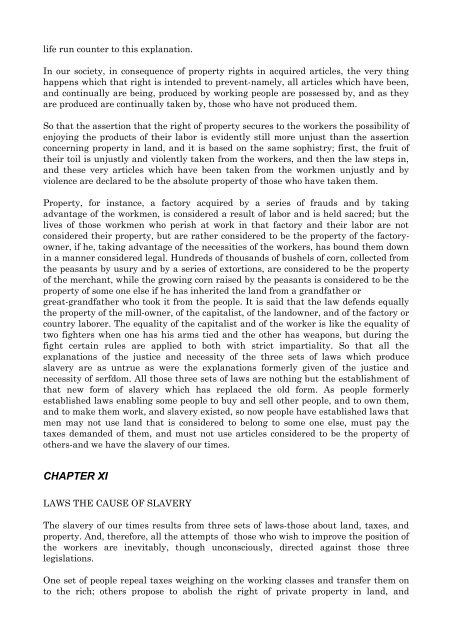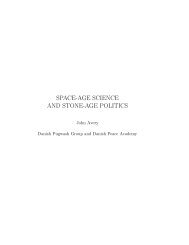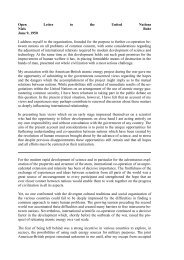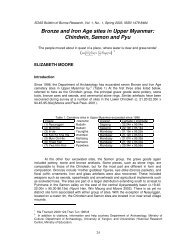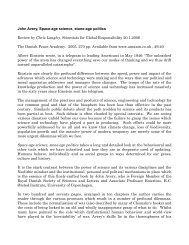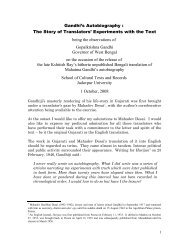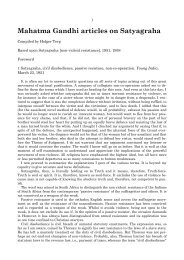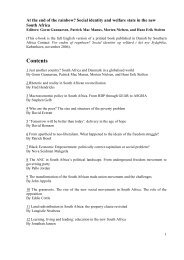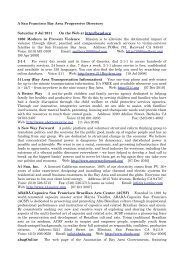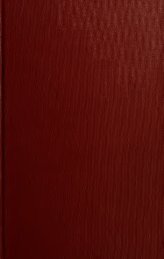THE SLAVERY OF OUR TIMES PREFACE / INTRODUCTION
THE SLAVERY OF OUR TIMES PREFACE / INTRODUCTION
THE SLAVERY OF OUR TIMES PREFACE / INTRODUCTION
Create successful ePaper yourself
Turn your PDF publications into a flip-book with our unique Google optimized e-Paper software.
life run counter to this explanation.<br />
In our society, in consequence of property rights in acquired articles, the very thing<br />
happens which that right is intended to prevent-namely, all articles which have been,<br />
and continually are being, produced by working people are possessed by, and as they<br />
are produced are continually taken by, those who have not produced them.<br />
So that the assertion that the right of property secures to the workers the possibility of<br />
enjoying the products of their labor is evidently still more unjust than the assertion<br />
concerning property in land, and it is based on the same sophistry; first, the fruit of<br />
their toil is unjustly and violently taken from the workers, and then the law steps in,<br />
and these very articles which have been taken from the workmen unjustly and by<br />
violence are declared to be the absolute property of those who have taken them.<br />
Property, for instance, a factory acquired by a series of frauds and by taking<br />
advantage of the workmen, is considered a result of labor and is held sacred; but the<br />
lives of those workmen who perish at work in that factory and their labor are not<br />
considered their property, but are rather considered to be the property of the factory-<br />
owner, if he, taking advantage of the necessities of the workers, has bound them down<br />
in a manner considered legal. Hundreds of thousands of bushels of corn, collected from<br />
the peasants by usury and by a series of extortions, are considered to be the property<br />
of the merchant, while the growing corn raised by the peasants is considered to be the<br />
property of some one else if he has inherited the land from a grandfather or<br />
great-grandfather who took it from the people. It is said that the law defends equally<br />
the property of the mill-owner, of the capitalist, of the landowner, and of the factory or<br />
country laborer. The equality of the capitalist and of the worker is like the equality of<br />
two fighters when one has his arms tied and the other has weapons, but during the<br />
fight certain rules are applied to both with strict impartiality. So that all the<br />
explanations of the justice and necessity of the three sets of laws which produce<br />
slavery are as untrue as were the explanations formerly given of the justice and<br />
necessity of serfdom. All those three sets of laws are nothing but the establishment of<br />
that new form of slavery which has replaced the old form. As people formerly<br />
established laws enabling some people to buy and sell other people, and to own them,<br />
and to make them work, and slavery existed, so now people have established laws that<br />
men may not use land that is considered to belong to some one else, must pay the<br />
taxes demanded of them, and must not use articles considered to be the property of<br />
others-and we have the slavery of our times.<br />
CHAPTER XI<br />
LAWS <strong>THE</strong> CAUSE <strong>OF</strong> <strong>SLAVERY</strong><br />
The slavery of our times results from three sets of laws-those about land, taxes, and<br />
property. And, therefore, all the attempts of those who wish to improve the position of<br />
the workers are inevitably, though unconsciously, directed against those three<br />
legislations.<br />
One set of people repeal taxes weighing on the working classes and transfer them on<br />
to the rich; others propose to abolish the right of private property in land, and


